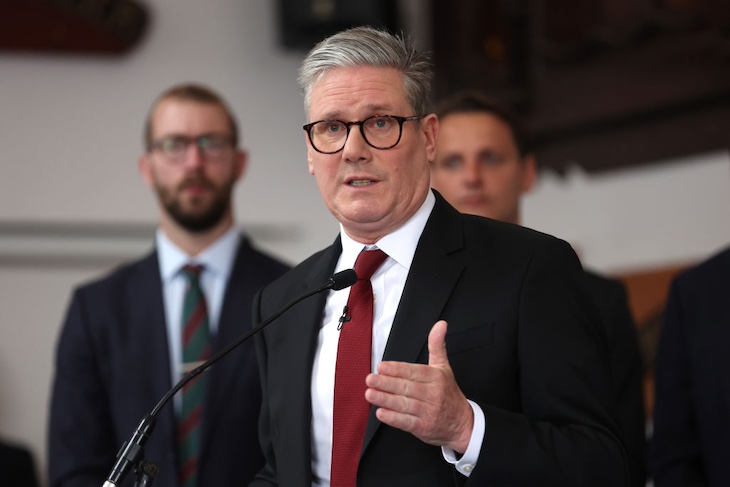It is small wonder that Treasury officials are unhappy about Conservative claims about Labour tax rises being attributed to them. The civil service is supposed to be neutral, and be seen to be neutral. James Bowler, permanent secretary at the Treasury, who wrote to the Labour party expressing concern that certain figures are being attributed to his officials, will almost certainly find himself having to work with a Labour government in a few weeks’ time.
There is one figure at the heart of the Conservative analysis of Labour’s tax and spending plans which really should be causing concern
What the Conservatives have done in making the claim that Labour will saddle households with an extra £2,000 in tax rises might be described as sharp practice. They have tricked Treasury officials by asking them to cost certain policies without telling them that the Prime Minister intended to quote them in order to try to undermine Labour’s fiscal policy in an election debate. The fact that Alastair Campbell admitted on the Today programme this morning that he did the same trick on behalf of the Blair government doesn’t make it right.
Nevertheless, the fuss over the provenance of the figures may serve to give the £2,000 figure even more airtime than it would already have received courtesy of Rishi Sunak’s repetition of the figure during Tuesday night’s debate. So, passing over who actually calculated the figure, does it actually have any legs?
The first thing to note is that the Conservative party document from which Sunak was quoting doesn’t claim that Labour will saddle households with £2,000 a year in tax rises, even if that is how many people will have taken it. The figure (actually £2,094 in the document) is supposed to be the cost of filling Labour’s fiscal black hole spread over four years – in other words it works out at a little over £500 a year. Moreover, the way the Prime Minister put it seemed to suggest that the burden would fall equally on Britain’s 18.4 million working households. Yet tax doesn’t just fall on households – a lot is paid by businesses. Moreover, Labour has specifically said that it wants the rich to pay more tax, so it is unlikely to place the burden of extra taxation equally across working households.
Keir Starmer’s failure to challenge the £2,000 figure until late in Tuesday’s debate was somewhat surprising – the Conservatives published their analysis weeks ago, so he must have known there was a strong chance Sunak would bring it up. Nor did he seek to defend Labour’s spending plans. Indeed, look through the Conservative party analysis and many voters might conclude that an extra £500 a year in tax might not be such bad value if it really did mean two million more GP appointments, 700,000 more dental appointments, an extra 8,500 mental health professionals, a return of family doctors, more qualified teachers and an extra 13,000 PCSOs –which might be dressed up as some kind of return to ‘bobbies on the beat’.
But there is one figure at the heart of the Conservative analysis of Labour’s tax and spending plans which really should be causing concern. By far the biggest single item on Labour’s spending list is £18.96 billion for decarbonising the electricity grid by 2030. No one can accuse the Tories of misrepresenting their opponents here because this comes from the Labour party’s own figure. Labour says it will cost £23.7 billion to achieve 100 per cent clean electricity by 2030. The Conservative party document simply takes four-fifths of this figure to quote a cost over four rather than five years. Yet the Conservatives could push a lot harder on this if they wanted to. Labour previously said it would spend £28 billion a year, every year for the next parliament, decarbonising the grid, so how come it now thinks it can be done for a fraction of the price? It hasn’t answered this question. The Conservatives could quote an estimate by independent consultants Aurora Energy which puts the cost at £116 billion over the next 11 years. That would have allowed Sunak to quote a much meatier figure for projected Labour tax rises.
Labour, for its part, says it wants to pay for decarbonising the grid through borrowing rather than taxation – so that the cost wouldn’t impact immediately on household tax bills. But there is bad news for Labour from an IFS (Institute for Fiscal Studies) analysis this morning which questions whether a Labour government could borrow £23.7 billion over the next parliament and remain within its own debt rules. The IFS concludes only just – and that relies on certain assumption which may soon have to be revised. If the cost of reaching Labour’s green pledges is very much more than £23.7 billion, which it almost certainly will be, then far higher borrowing or taxes beckon.








Comments